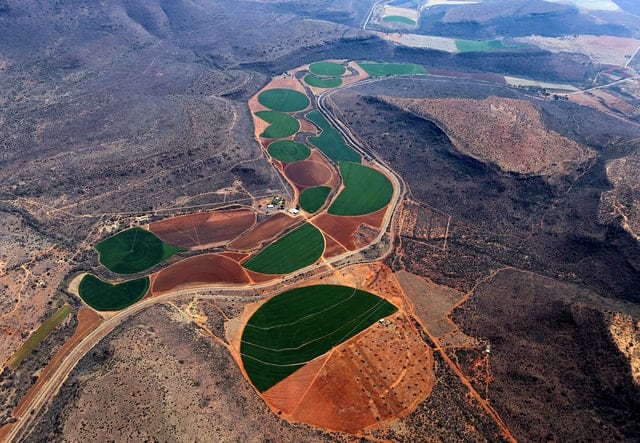Did anyone else notice that the Doom and Gloom articles that we used to see all the time about running out of water have disappeared from the news cycle? You actually have to google the topic to get an answer or even become aware of this problem. The lack of interest is probably one of the symptoms of End of the World Fatigue.
The question itself needs to more specific. When will have severe water shortages that have a huge impact on society? The best estimate for this would be in the year 2040, which is only 20 years away. This is the point when water shortages will be significant enough to disrupt agriculture, directly impacting food security and supplies. This is the year demand estimated to be greater than the available supply.
I like drinking water and taking showers just as much as the next person. I’m also partial to eating food every day(a little too partial, according to my spouse). I did a little research and will share what I’ve learned in this article with you. If you want to dive deeply into the subject, there are plenty of researchers who spend their whole life studying water. I have some links at the bottom of this article to further information.
When Will We Run Out of Useful Freshwater?
What I got out of my research is that the source of our coming water shortage is groundwater depletion. Everyone knows and has heard of how we use so much groundwater that New Orleans, Houston, and the Central Valley in California are sinking by at least 2 inches a year. Also that the Midwest aquifer water table is estimated to be dropping by 2 feet a year.
This is true but not itself the problem. We will be able to drill deeper wells and continue extracting water well past our 2040 cutoff date.
The problem is that a small change in aquifer levels, which we have already surpassed worldwide, slowly reduces spring waters that are the source for the majority of the rivers and waterways in the world. Once the aquifer threshold has been reached, the source will dry up over a decade or two.
These rivers and waterways supply the majority of freshwater for agriculture on earth. It would take decades to refill the aquifers(if we could figure out how) and then more time for the spring water to return for the rivers.
The other problem is that most of the regions that will be impacted by this water depletion are the ones that have the fewest resources available for alternate ideas and supplies. This will result in food insecurity and famine on a huge, worldwide scale.
I’m confident that the United States, Europe, and other first-world nations could scramble and come up with solutions in a short period of time for themselves by throwing money at the problem. They won’t make the investments for other parts of the world that will need it first. There is no incentive for the number of resources needed.
I’m not feeling confident that the countries capable of fixing this water crisis will be able or willing to act quickly enough to do so.
Most of the information I’ve researched touches on this and then goes right into the need for alternate water sources like desalination plants, recycling, etc. Those ideas will all be necessary on a huge scale, but the cost involved doesn’t make economic sense with water’s current price.
It’s easier for government officials to do studies on water security and depletion, talk about how we have 20 years to start acting, and then not spend more than a token amount to invest in the infrastructure needed. They cannot justify the cost and don’t want to end their career early.
One of the more frequently cited research papers on water depletion, by Alberto Boretti and Lorenzo Rosa in the NJP clean water journal(Link to the study here), found that about half the world population will be affected by water shortages and scarcity by 2050. This article is the main source for 2040 being the deadline for a water crisis(when supply exceeds demand).
Most of these studies don’t take global warming and climate change into consideration other than saying that they will make the situation worse and expiration date on enough water occur sooner.
97% of the water on our blue planet is in the ocean. 2.5 % is frozen on the ice caps and in glaciers or is not available for use, leaving .5% as the water source for life on earth. We use about 70% of our freshwater supplies for agriculture and, 18% for energy production, and about 6% for manufacturing. Domestic use by individuals is less than 1%.
The only solution is rapidly scaling up desalination projects and sources and while restoring aquifers. Most studies have this same information but gloss over the fact that the regions of the world that need to do this immediately don’t have the money to do so.
Will We Ever Run Out of Drinking Water?
The amount of water used for drinking and domestic use is about 8% in the United States and about 10 to 30% globally. Some cities such as Tokyo, Beijing, and London are projected to run out of drinking water and supplies in the next decade or two.
Major cities will have the resources to implement projects to maintain water supplies for domestic use. Although expensive, desalination plants can be built quickly and supply enough rationed water for these major cities.
In South Africa, Cape Town was the first major world city to have a major water shortage where they were praying for rain, and storage was at about 10% of usable capacity. The City was a couple of months away from shutting the water off and had plans drawn up to distribute water at 149 stations around the city. They started getting rain before this had to be implemented.
What Happens if We Run Out of Water?
In 2019 the estimate for the number of people suffering from malnutrition, or a severe food insecurity crisis was about 135 million people. Mostly in Africa and parts of southeast Asia. The estimate for 2020 is about 270 Million due to the reduced farming output from Covid 19.
Soon, sometime in the next 20 years, there will be a drought in a part of the world that is already completely stressed from the aquifer depletion and food shortages will occur on a worldwide scale.
At what point does China or India go to war to obtain food for its citizens. Its a matter of survival for them so its a very serious question. What will the repercussions of those conflicts be on the rest of the world?
How Much Water is Wasted Every Day?
We hear about water conservation and recycling frequently. We all need to go and buy the newest low flow smart phone controlled toilet and sinks to minimize waste. California will start charging people extra for using more than there estimated allotment starting in 2020.
Domestic water usage is about 10% of the total freshwater consumption. Agriculture is 70% of usage and the estimates are that 50% of that water is wasted due to poorly constructed and designed irrigation systems. The poorer countries waste an even higher percentage of water.
The solution is technological advances in farming that use every last drop of water. Space exploration hopefully speeds the development of the necessary and useful technologies because they cannot afford to waste even a drop of water.
Resources:
https://www.usbr.gov/mp/arwec/water-facts-ww-water-sup.html
Alberto Boretti and Lorenzo Rosa in the NJP clean water journal(Link to the study here)

